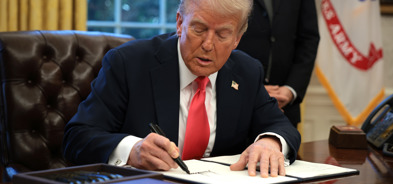News and insights
Featured Articles

Investing
Bank of England cuts interest rates to 4.25%: what does it mean for your personal finances?
At its meeting on 7 May 2025, the Monetary Policy Committee (MPC) voted by a majority of 5–4 to reduce Bank Rate by 0.25 percentage points, to 4.25%. Bestinvest personal finance analyst, Alice Haine, breaks down what it means for your personal finances.


Investing
Seven investing principles for DIY investors in volatile markets
Investing
All investing news
Investing
Bank of England cuts interest rates to 4.25%: what does it mean for your personal finance…


Investing
Seven investing principles for DIY investors in volatile markets
Investment Outlook
All Investment Outlook news

Investment Outlook
Investment Outlook: Europe has woken up to the “America First” agenda

Investment Outlook
Investment Outlook: Equities swipe left on Trump’s tariff threats
Financial planning
All financial planning news

Financial planning
Maximise your capital gains tax exemption before the end of the tax year

Financial planning
Financial gifts gain popularity this Christmas as inheritance tax rules could tighten
Market news
All market news
Market news
2024 Autumn Budget Overview: The key announcements from Chancellor Rachel Reeves


Market news
Oil price rally: are there opportunities in ‘cheap’ energy shares?
Podcasts
All podcasts
Podcasts
The Evelyn Partners Investment Podcast: Why is the US driving the global equity market ra…

Podcasts
The Evelyn Partners Investment Podcast: Diversifying the diversifiers amid geopolitical t…

Podcasts
The Evelyn Partners Investment Podcast: Why are markets breaking out and broadening?
Pensions and retirement
All pensions and retirement news
Pensions and retirement
10 pension tax benefits and pitfalls to know about


Pensions and retirement
Extra money? Should you top up your pension or pay extra on your mortgage?
Get insights and events via email
Receive the latest updates straight to your inbox.



